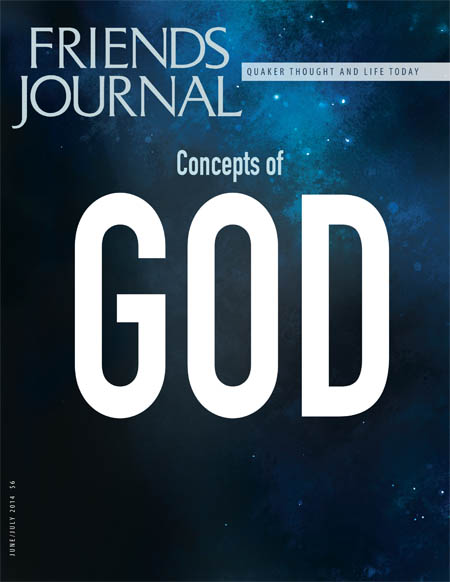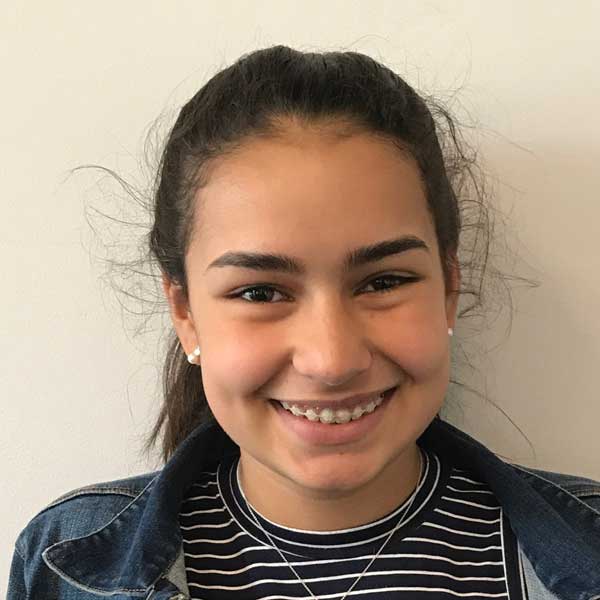
I believe there are many names for it. I believe all can center themselves in a way to hear it: that still, small voice.
Since I was a small child, I heard it most often referred to as “the Inner Light,” or “the Truth.” I don’t remember if I ever asked for an explanation of its source. What I do remember is a consistent and clear directive that I would find my own answers to whatever questions I might have. I remember—more than any specific words or teachings—an emotional reaction from my convinced Quaker parents that validated this position. They went on to give my sisters and me a childhood that sought to expose us to the contemporary world as Quakers, and we learned to trust that voice within, listen to each other, seek out knowledge, stand up for justice, and celebrate community.
In some ways, I believe I developed such conviction of belief in inward truth that—for better or worse—I became hardened against anyone who might try to interpret the world around me, or within me, on my behalf. Even today, I remain cautious whenever a Quaker attempts to speak about belief on behalf of anyone other than himself or herself.
As I reflect on my Quaker childhood, a curious part of me wonders about the religious beliefs of the adults in my home meeting. I loved and trusted them so much. Did they worship a deity? Was there a named “him” or “her” at their center? I don’t know, but now, as I navigate raising my own Quaker children, I realize it is this absence of knowing about each other’s center that may best define our religious society. Because what resulted when there was no imposed collective creed or dogma was a little girl who grew up with a loyalty to testify each day to an undeniable worldview: however you might justify it, we are all connected.
Look across our vast world. We may differ in our religious and political ideologies. We may not share the wealth and resources of the world equally. Our social values are not all identical, nor are our skin colors. But we can be in relation with each other in a way that enriches life, creates new discoveries, and acknowledges the common humanity we do share.
As a result of adopting this view, the center of my Quakerism today has two parts. The first part is to testify each day to a life that shows love and caring to everyone and everything. To me, living this kind of life means being trustworthy and a person of truth; to reference the words of George Fox, it means to walk cheerfully over the world, seeing good in everyone, to be a pattern and an example.
Quaker historian Margaret Hope Bacon once wrote, “There is a directness of approach which most Quakers share.” Regardless of how you name your center, this much is true. I have met many Quakers from all parts of our society, and I think most—if not all—of them would agree with the following: I will always be better from seeking out understanding; I cannot turn my back on need; there is a powerful responsibility I hold to use my voice where it is needed; and by being open to the ideas and experiences of others, I live a more fulfilled life.
The second part of my center of Quakerism is an ancient commitment to be held accountable to my still, small voice. In adherence to this, I gather in the company of silent worshippers who are content to sit down together without words, each finding his or her center, breathing deep, and listening to the inner self and to one another. Such an activity requires a willingness to both witness and actively participate in collective action in this age of individualism. It is humbling. There is a deep mysticism in a gathered meeting for worship.
And so as modern Friends, we live out a shared faith and practice authored by the earliest Quakers:
Friends, these things we do not lay upon you as a rule or form to walk by, but that all with the measure of the light which is pure and holy may be guided, and so in the light walking and abiding, these may be fulfilled in the Spirit,—not from the letter, for the letter killeth, but the Spirit giveth life.
Faith is a confident belief in the truth, value, or trustworthiness of a person, idea, or thing. We as Quakers stand as people of faith. Practice is the actual application or use of an idea, belief, or method as opposed to simply a theory about such application or use. Quakers walk our walk.
The Spirit, the Inner Light, the Truth is not a book or a steeple or a bell or a key. It is our connectedness as humanity. I know there will continue to be many names for its source, but we don’t require identical understanding. It is our shared commitment to live as “Children of the Light,” as “Friends of the Truth”—to honor the personal experience of each person and strive for a life that stands for equality, peace, integrity, and love. To welcome all to the table is to be Quaker, and I am honored to be a part of this continuing tradition.






It is such a huge joy to read the thoughts of my eldest daughter about her faith. When you are raising them, you never know…My own Quaker faith is one of the parts of my life about which I feel so solid that it is a blessing to know that she feels strongly about hers as well. I am grateful to Penn Valley Meeting who asked her to join the Ministry and Oversight Committee when she was 12 years old and to the AFSC Central Committee who asked her to serve with them the next year (I hope I am remembering this correctly–but she was young). I often did Quaker service here and there and would be introduced as “Breeze’s Mom.” I remember this happening at the Friends Gathering when she was on a committee there and co-clerking the HS group, as well as when I attended the Pendle Hill Clerking Workshop and she already taken it years before! Because of Breeze I built homes on Pine Ridge with the AFSC Joint Service Project, served on AFSC Central Committee, and was on several FGC committees. I have always felt eldered by her. I am so honored to be her mother, Barb Luetke
Before we as humans can move upward and outward in our development we must first find our center. I love the way you have defined your own center without the usual constricting words used by religions. I feel that each of us has the right and the need to create our own metaphors to describe the inner life. Your parents gave you the freedom to do so from the beginning. Instead of discarding thoughts that were never yours to begin with, you have had permission to weave your own story. How fortunate you were.